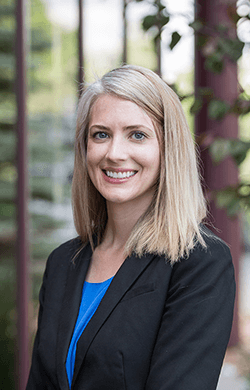
When filing for bankruptcy and owning a home, it is important for a debtor to understand they will still have an obligation to the mortgage lender. With Chapter 7 bankruptcies the obligation is fairly obvious, the debtor will continue to make the normal monthly mortgage payment to the lender, but in a Chapter 13 bankruptcy, the debtor’s obligation may be less obvious.
If you are in a Chapter 13 bankruptcy, the expectation is the debtor will remain current on any mortgages they have on the home. According to the bankruptcy code, specifically Federal Bankruptcy Rule 3002.1, debtors must be timely notified of any fee adjustments, and failure to comply can result in penalties. If the debtor does not remain current on the mortgage payment the mortgage lender can motion the court to lift the stay so the lender can proceed with collections measures, which usually means initiating a foreclosure proceedings..
Mortgage Obligations in Chapter 13 Bankruptcy
If a homeowner’s mortgage has an escrow account, the mortgage payment can fluctuate. An escrow account is used to hold funds managed by the mortgage company for possible expenses including insurance premiums and property taxes. The mortgage lender manages the escrow account and makes the payments on the homeowner’s behalf as they come due. The reason the mortgage payment fluctuates is not because of the bankruptcy. The fluctuation is because the homeowner has an escrow account and insurance premiums and property taxes fluctuate over time.
Mortgage servicers must file notices of payment changes with the bankruptcy court, emphasizing the accountability for compliance with federal rules.
If the homeowner’s escrow account is short, due to higher expenses, the mortgage lender will increase the homeowner’s mortgage payment, to make up for the shortage. The mortgage lender is allowed to collect enough to pay the homeowner’s expenses and a possible cushion of funds.
Escrow Accounts and Payment Fluctuations
The mortgage lender calculates your annual tax and insurance payments for the year and adds that amount to your monthly mortgage statement. The lender deposits a portion of the homeowner’s monthly payment in the escrow account to cover the insurance and taxes. The lender can require an “escrow cushion” to cover expected costs.
Escrow accounts also manage payments for homeowners insurance, which is crucial for preserving the value of the property.
The bankruptcy does not cause your monthly mortgage payment to increase. If the mortgage company does increase the mortgage payment, it is likely due to the homeowner’s escrow account and the mortgage lender anticipating a shortage of the escrow account. Regardless, of the reason for the increase of the mortgage payment, the homeowner does need to remain current on the mortgage payments and make the payment as indicated by the mortgage lender.
Delving Deeper into Chapter 13 and Your Mortgage Payments
In a Chapter 13 bankruptcy, you create a repayment plan to catch up on missed payments over three to five years. While this offers a way to avoid foreclosure, it’s crucial to understand how your mortgage fits into this plan.
Mortgage Arrears in Chapter 13
If you’re behind on your mortgage payments when you file for Chapter 13, those missed payments (called “arrears”) become part of your repayment plan. You’ll need to catch up on those missed payments over the plan’s duration, in addition to making your regular monthly mortgage payments.
Modification of Mortgage Terms
In some cases, it may be possible to modify the terms of your mortgage through a Chapter 13 bankruptcy. This might involve reducing your interest rate, extending the loan term, or even forgiving a portion of your debt if you owe more than your home is worth. However, mortgage modifications in bankruptcy are complex and not always successful. At the conclusion of the repayment process, a notice of final cure payment must be filed, triggering a required response from the servicer regarding the debtor's current payment status.
Escrow Analysis and Bankruptcy Court
Mortgage lenders are required to perform an escrow analysis annually. This analysis ensures your escrow account has enough funds to cover property taxes and insurance premiums. If your escrow account is short, the lender might increase your monthly payment to make up the difference.
Escrow Analysis After Filing
After you file for bankruptcy, it is crucial to maintain your monthly payments both before and after filing. Your mortgage lender is also required to perform an escrow analysis. This is important because the bankruptcy filing might affect your escrow balance. For example, if your property taxes or insurance premiums decrease during bankruptcy, your escrow account might have a surplus.
Legal Help for Navigating Mortgage Issues in Bankruptcy
Bankruptcy law and mortgage law are complex. If you’re facing foreclosure or struggling with your mortgage payments while going through bankruptcy, it’s crucial to seek legal advice from an experienced bankruptcy attorney. They can help you understand your options, protect your home, and navigate the legal process.
Mortgage servicers are required to conduct new escrow analyses upon the filing of bankruptcy and ensure accurate handling of escrow accounts.
Additional Considerations for Homeowners in Bankruptcy
Home Equity: If you have equity in your home (meaning it’s worth more than you owe on it), you might be able to protect that equity through bankruptcy exemptions.
Second Mortgages: If you have a second mortgage or home equity loan, there might be options to eliminate or reduce those debts through bankruptcy.
Reaffirmation Agreements: If you want to keep your home after bankruptcy, you might need to sign a reaffirmation agreement, which reaffirms your mortgage debt.
Prepetition Arrearages: It is crucial to accurately report prepetition arrearages in official forms like B410A to avoid confusion regarding the debtor's current payment status and the servicer's financial losses.
Remember:* Bankruptcy laws vary by state, and your individual situation will affect your options. Always consult with a qualified attorney to get personalized advice.*
Avoiding Foreclosure Through Bankruptcy: A Strategic Approach
Bankruptcy can be a powerful tool for homeowners facing foreclosure. However, it’s not a magic bullet, and it’s essential to understand how bankruptcy can help you save your home.
Automatic Stay: The Foreclosure Shield
When you file for bankruptcy, an automatic stay immediately goes into effect. This legal injunction halts all collection activities, including foreclosure proceedings. This gives you breathing room to reorganize your finances and catch up on missed payments. However, mortgage servicers may demand payment from homeowners for escrow deficiencies that arise due to initial errors in Chapter 13 escrow calculations.
Chapter 13 Repayment Plans: Your Path to Keeping Your Home
Chapter 13 bankruptcy allows you to propose a repayment plan to the court. This plan typically lasts three to five years and includes your missed mortgage payments (arrears). By making regular payments under the plan, you can cure the default and save your home from foreclosure.
Chapter 7 and Mortgage Obligations
While Chapter 7 bankruptcy doesn’t involve a repayment plan like Chapter 13, it can still impact your mortgage. If you want to keep your home, you’ll need to continue making your regular mortgage payments. If you fall behind, the lender can ask the court to lift the automatic stay and proceed with foreclosure.
Considerations Beyond Bankruptcy
Filing for bankruptcy can help you address your mortgage debt and avoid foreclosure, but it’s important to consider the long-term implications.
Credit Impact: Bankruptcy can negatively impact your credit score, making it more difficult to obtain loans or credit in the future. However, the long-term benefits of saving your home and getting your finances back on track can outweigh the short-term credit hit. Recognizing a substantial difference in escrow amounts during Chapter 13 bankruptcy is crucial to mitigate potential financial write-offs and assist debtors in managing their repayment plans effectively.
Financial Responsibility: Even after bankruptcy, it’s crucial to manage your finances responsibly to avoid falling into the same debt traps again. Budgeting, prioritizing essential expenses, and seeking financial counseling can help you stay on track.
A Holistic Approach to Homeownership and Financial Well-being
Protecting your home during financial hardship requires a comprehensive approach. Bankruptcy can be a vital part of this approach, but it’s not the only solution. Exploring other options, such as loan modifications, forbearance agreements, or even selling your home, can also be viable paths depending on your circumstances.
Obtaining specific mortgage-related documents from servicers is essential to ensure that balances and claims are accurate, especially when dealing with the complexities of mortgage proofs of claim and escrow accounts throughout the bankruptcy process.
Remember, seeking legal advice early on is crucial to explore all your options and make informed decisions about your home and financial future.
CALL NOW FOR A FREE STRATEGY SESSION FROM AN MN BANKRUPTCY LAWYER AT LIFEBACK LAW FIRM
Debtors in a bankruptcy can retain their home, but the debtor is responsible for making post-petition payments to the mortgage. It is crucial to have accurate information regarding mortgage escrow accounts when filing for bankruptcy to ensure proper management of payments and adherence to legal requirements. Contact the attorneys at LifeBackLaw and see us at www.LifeBackLaw.com and let us help you get your life back.
FAQ: Mortgages, Escrow, and Bankruptcy
1. Will I lose my home if I file for bankruptcy?
Not necessarily. Bankruptcy offers tools to help you catch up on missed payments and avoid foreclosure. Whether you can keep your home depends on the type of bankruptcy you file, your ability to make payments under a Chapter 13 plan, and other factors.
2. How does bankruptcy affect my escrow account?
Filing for bankruptcy can trigger an escrow analysis. This ensures your account has enough funds to cover property taxes and insurance premiums. If your escrow is short, your monthly payment might be adjusted.
3. Can I change my mortgage terms through bankruptcy?
In some Chapter 13 cases, you might be able to modify your mortgage terms, potentially lowering your interest rate or even reducing the amount you owe. This is a complex process, and success is not guaranteed.
4. What happens to my missed mortgage payments in bankruptcy?
In Chapter 13 bankruptcy, missed mortgage payments (arrears) become part of your repayment plan. You’ll catch up on those missed payments over the plan’s duration.
5. Can I still get a mortgage after bankruptcy?
Yes, but it might be more difficult and you may face higher interest rates. Your ability to get a mortgage will depend on your post-bankruptcy credit history and other financial factors.
6. Should I reaffirm my mortgage in bankruptcy?
Reaffirming your mortgage means agreeing to continue paying the debt after bankruptcy. It’s a personal decision that depends on whether you want to keep your home and can afford the payments.
7. How long does the automatic stay protect my home from foreclosure?
The automatic stay remains in effect throughout your bankruptcy case. If you follow the terms of your Chapter 13 plan or make timely payments under Chapter 7, you can likely keep your home.
8. What if I have a second mortgage?
Bankruptcy might offer options to eliminate or reduce your second mortgage, especially if you have little or no equity in your home.
9. Will my lender increase my mortgage payment because of bankruptcy?
Bankruptcy itself doesn’t directly cause your payment to increase. However, an escrow analysis triggered by the filing could lead to adjustments if your escrow account needs more funds.
10. Do I need a lawyer for bankruptcy involving a mortgage?
Absolutely. Bankruptcy and mortgage laws are complex. An experienced bankruptcy attorney can guide you through the process, protect your rights, and help you keep your home.
11. What is the role of the bankruptcy court in mortgage servicing during bankruptcy proceedings?
The bankruptcy court plays a crucial role in overseeing mortgage servicing during bankruptcy proceedings. Mortgage servicers must file notices of payment changes with the bankruptcy court, ensuring compliance with federal rules. This accountability helps homeowners navigate Chapter 13 repayment plans and ensures proper handling of escrow accounts.





